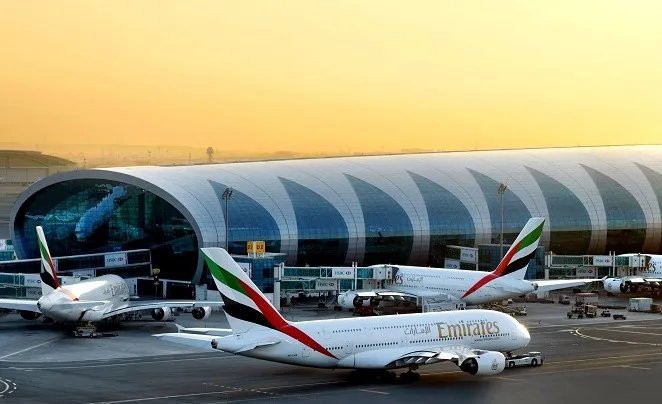
Dubai A380 announcement prospects plummet
Nov 13, 2017

Dubai's recent announcement regarding the future of its Airbus A380 fleet has raised concerns about the prospects of the iconic aircraft. Despite initial optimism for continued operations, factors such as changing travel demands, economic uncertainties, and a shift towards more fuel-efficient models have led to a reevaluation of the A380's viability. Airlines are increasingly favoring smaller, more versatile aircraft, which has further dampened the outlook for the superjumbo's future in the region. As a result, stakeholders are left questioning the long-term role of the A380 in Dubai's aviation landscape, impacting both operational strategies and passenger expectations.
Dubai's aviation landscape has been significantly impacted by the recent announcement regarding the Airbus A380. As one of the largest and most iconic aircraft in the world, the A380 has long been a symbol of luxury and efficiency in air travel. However, recent developments have led to a decline in prospects for this flagship aircraft, particularly for Dubai's Emirates Airlines, which has been a major operator of the A380.
Understanding the A380's Role in Dubai's Aviation
The Airbus A380 has played a crucial role in establishing Dubai as a global aviation hub. With its massive capacity and long-range capabilities, the A380 has enabled Emirates Airlines to connect various international destinations with ease. The aircraft's popularity among travelers has also contributed to Dubai's status as a premier tourist destination.
Factors Contributing to the Decline in A380 Prospects
Several factors have contributed to the plummeting prospects of the A380 in Dubai:
- Changing Passenger Preferences: There has been a noticeable shift in passenger preferences towards smaller, more fuel-efficient aircraft. As travelers become more environmentally conscious, airlines are increasingly focusing on sustainability, making the A380 less appealing.
- Market Dynamics: The aviation market is evolving, with low-cost carriers gaining popularity. These carriers often utilize smaller aircraft, which are more economical to operate and better suited for point-to-point travel.
- Economic Uncertainty: Economic fluctuations and uncertainty in global markets can impact travel demand. The ongoing effects of the pandemic have resulted in cautious spending among consumers, leading to reduced bookings for large-capacity aircraft like the A380.
The Impact on Emirates Airlines
Emirates Airlines has been particularly affected by this decline. As one of the largest operators of the A380, the airline has relied heavily on the aircraft for its long-haul routes. However, with changing market conditions, Emirates is now reassessing its fleet strategy.
Current A380 Fleet Status
As of now, Emirates maintains a significant fleet of A380s. The following table outlines the current status of the A380 fleet:
| Aircraft Type | Number in Fleet | Routes Served |
|---|---|---|
| Airbus A380 | 115 | Global destinations including London, New York, and Sydney |
Future Prospects for the A380 in Dubai
Looking ahead, the future of the A380 in Dubai remains uncertain. While the aircraft has been a significant part of Emirates' operations, the airline is exploring various strategies to adapt to the changing landscape:
- Fleet Modernization: Emirates Airlines is considering a transition towards more modern, fuel-efficient aircraft that align better with current market demands.
- Route Optimization: The airline is focusing on optimizing its routes to ensure that the A380 is deployed on high-demand, long-haul flights where its capacity can be fully utilized.
- Potential Retrofitting: There are discussions around retrofitting existing A380s to enhance passenger experience and improve operational efficiency.
Conclusion: The A380's Legacy
Despite the challenges facing the A380, it remains a remarkable feat of engineering and design. Its legacy in Dubai's aviation history is undeniable, having contributed significantly to the region's growth as an international travel hub. As Emirates Airlines navigates the future, it will be crucial to balance the iconic status of the A380 with the evolving needs of travelers.
Key Takeaways
In summary, the announcement regarding the Airbus A380 has led to a decline in prospects for this aircraft in Dubai's aviation scene. The changing dynamics of passenger preferences, economic factors, and market competition have all played a role in reshaping the future of the A380. Emirates Airlines is currently evaluating its fleet strategy to adapt to these changes, ensuring that it remains competitive in the global aviation industry.
As the aviation world continues to evolve, the A380's role may diminish, but it will always hold a special place in the hearts of aviation enthusiasts and travelers alike. The future may be uncertain, but the legacy of the A380 will endure.
Related Articles

Explore Thailand: The Best Islands to Visit for Paradise, Adventure, and Relaxation

The Ultimate Guide to the Best Islands in Thailand for Your Next Getaway

Do babies need passports? How to get a passport for a newborn

How to get a U.S. passport fast: here’s how to expedite the process

What is Mobile Passport Control: 5 reasons why you should use it

SENTRI vs. Global Entry: A detailed guide

Do you need a passport to go to the Bahamas? Let’s find out

Do you need a passport to go to Mexico? A detailed guide

Do you need a passport to go to Canada? We got the answer

Do You Need a Passport for a Cruise: An Essential Travel Guide

Booster Seat Requirements: All the Rules to Follow in Your Rental Car

What Are the World’s Most Powerful Passports, and How Does Yours Rank?

How to Take a Passport Photo at Home: A Helpful Guide

You've got to have heart! Southwest's new livery

Your opinion: Should water be free on low cost carriers?

Young women bolder than guys as solo travellers
